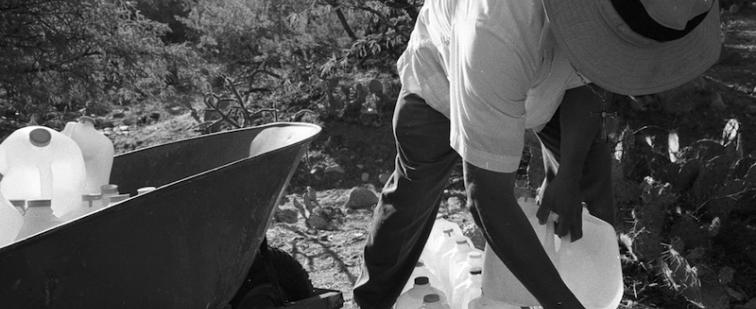Home
The UN Security Council voted last October 15 to extend the mandate of the UN Stabilization Mission in Haiti (Minustah) for another year. The next day, Brazil’s foreign relation’s office released a statement saying, “The Brazilian government is satisfied with the decision.” The Brazilian army is in charge of coordinating the close to 9,000-strong Minustah forces. But there is little debate in Brazil about the country’s role in the occupation of Haiti and even less discussion about charges of human rights abuses against the UN troops.
The protagonists of tomorrow are people who are off-line, somehow off the grid, "unsophisticated" or simply unimpressed by the general spectacle of information-overload and conspicuous consumption.
Several documentaries have appeared since Evo Morales was elected president of Bolivia, some of which are closely linked to political developments in that country. The Devil’s Miner, by Kief Davidson and Richard Ladkani, is instead a social document that avoids overt political comment. Premiered in 2005, it was finally shown in La Paz in October 2006 and welcomed as providing an outside viewpoint invaluable in the comprehension of national reality. One critic saw it as “essential in order to understand the world of the Potosí mines.”
"A great nation must command the respect of others," writes Hillary Clinton in the new issue of Foreign Affairs. But what about showing a little respect? In her infatuation with U.S. power and the transcendent "American idea," she forgets that international cooperation is not just about winning respect, it's also about respecting other nations.
"Developing nations must create their own mechanisms of finance instead of suffering under those of the IMF and the World Bank, which are institutions of rich nations . . . it is time to wake up."That was Lula da Silva, the president of Brazil—not Washington's nemesis, Hugo Chávez—speaking in the Republic of Congo just two weeks ago.
When Eugenio Kasalaba awoke on March 24, 1976, in Argentina’s northeastern-most province of Misiones, he and his father began the day with their usual routine of heating water and turning on the radio. But instead of the expected news program or an old tango, they heard an unmistakable sign of the coming terror: “Avenida de las Camelias,” the Argentine military’s favorite marching-band song, all across the radio dial, the same song. Stunned, Kasalaba muttered, “Papá, el golpe, el golpe” (Dad, the coup, the coup). Without taking his eyes off the radio, his father replied, “Come, let’s have a mate.”
In the Brazilian state of Paraná, Valmir Mota de Oliveira of Via Campesina, an international peasant organization, was shot twice in the chest at point blank range by armed gunmen on an experimental farm of Syngenta Seeds, a multinational agribusiness corporation. The cold blooded murder took place on Sunday, October 21 after Via Campesina had occupied the site because of Syngenta’s illegal development of genetically modified (GM) seeds.
With the election of Cristina Fernández de Kirchner as president, Jorge Lanata, one of Argentina's most respected journalists, takes a look into the Kirchners' storybook rise to power. Tracing the history of President Néstor Kirchner, Lanata reveals the story behind Argentina's enigmatic power couple.
When we arrived in Ciudad del Este, we were petrified. After all, we were in the Paraguayan city known in the U.S. press as a “Jungle Hub for World’s Outlaws” (L.A. Times, 8/24/98), and a “hotbed” “teeming with Islamic extremists and their sympathizers” (New York Times, 12/15/02).
ver 50 years ago, Enrique Petro left his humble home to seek out a new life farming in the northwestern region of Urabá, Colombia. A poor farmer, Petro slowly managed to eke out a living in the thick and inhospitable jungle. He was able to provide food for his large family and live in relative peace while the much of the country remained gripped by war. “It was a healthy and peaceful time for us, and our children were well taken care of,” recalls Petro. But in February 1997, Petro’s life changed radically.












